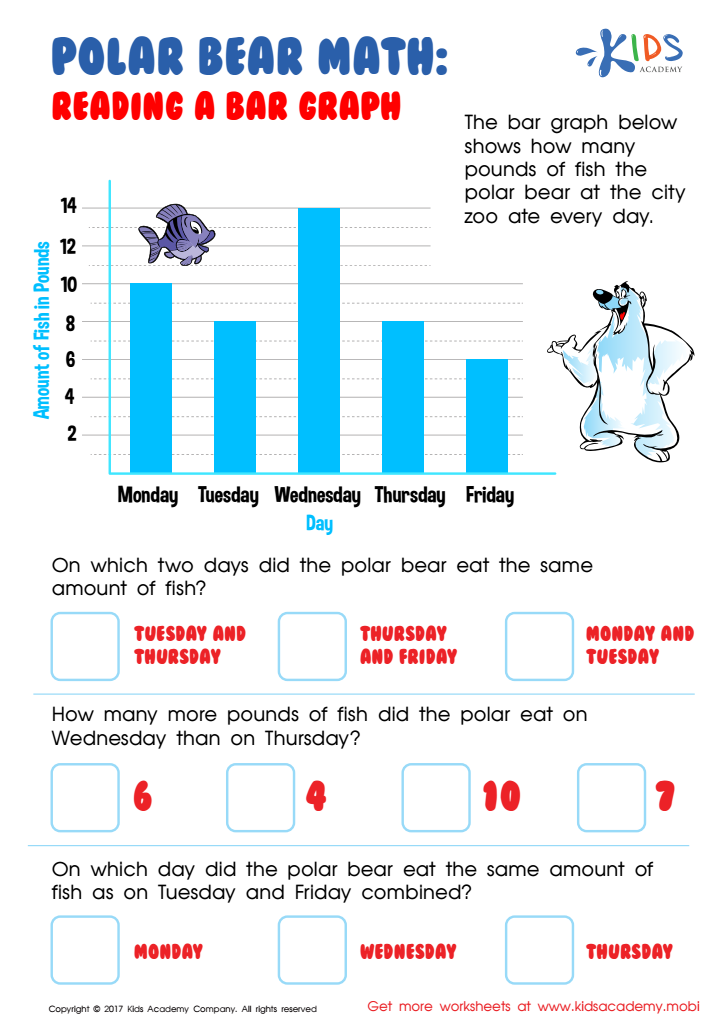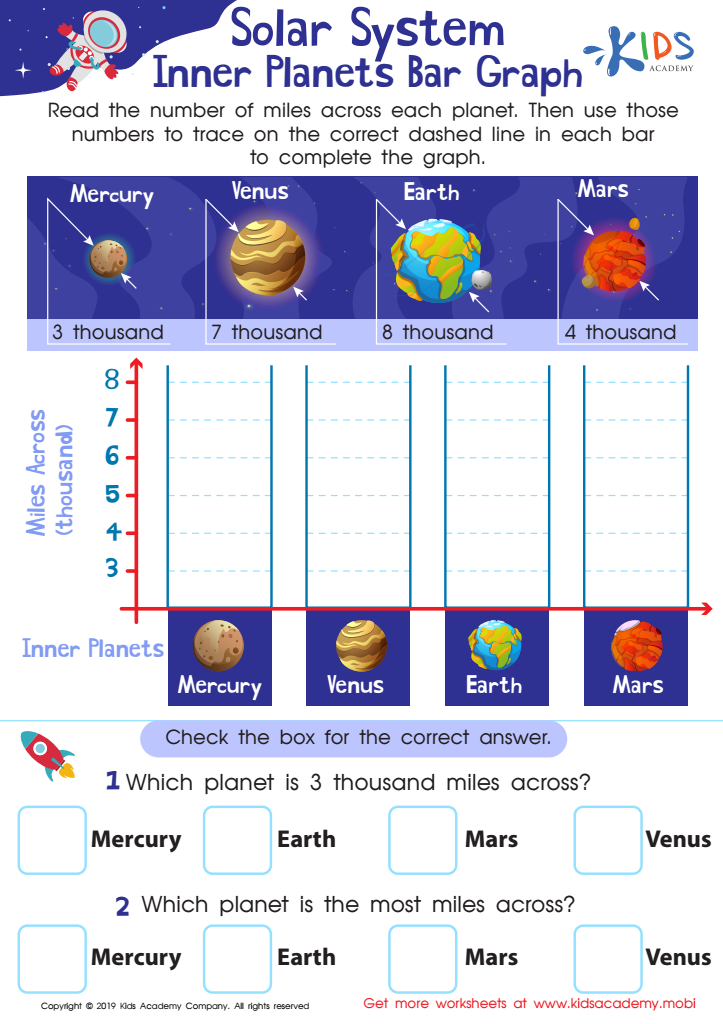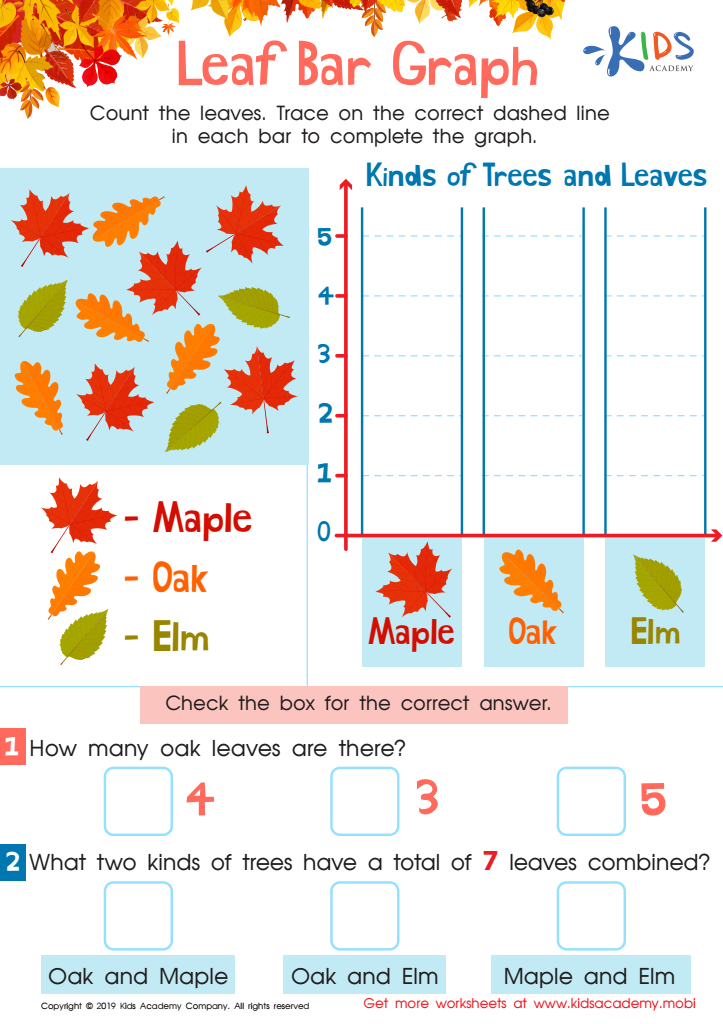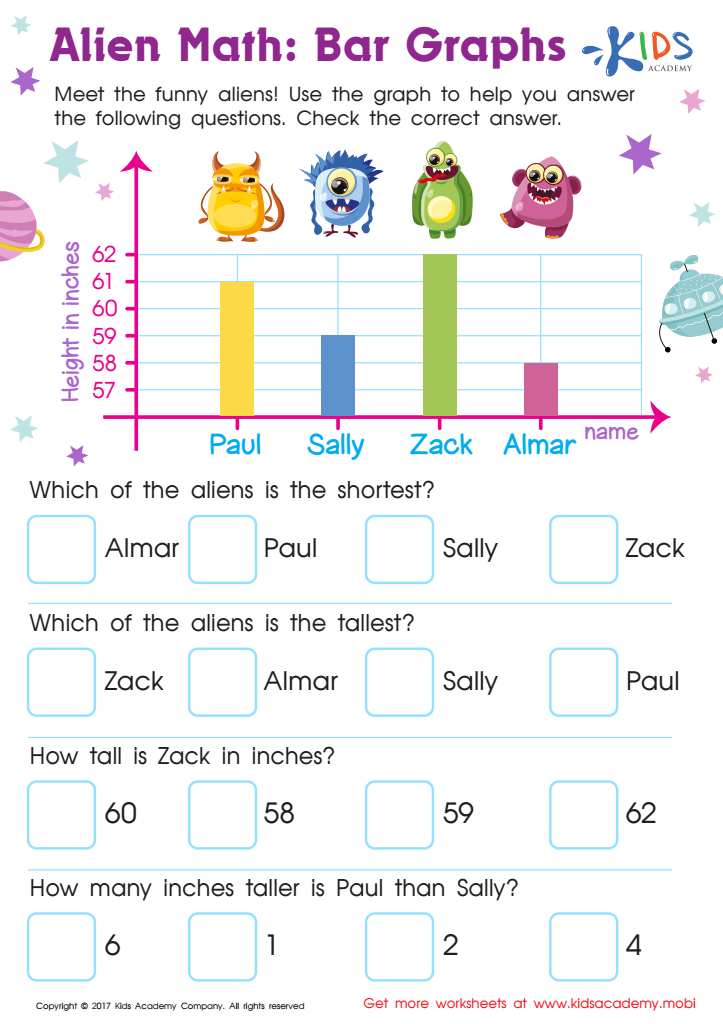Understanding bar graphs Extra Challenge Math Worksheets for Ages 6-9
4 filtered results
-
From - To
Challenge and stimulate young minds with our "Understanding Bar Graphs Extra Challenge" math worksheets for ages 6-9. These engaging resources are designed to reinforce essential graph-reading skills by presenting kids with more complex data handling tasks. Each worksheet encourages critical thinking, problem-solving, and supports the development of mathematical reasoning. Fun, interactive, and aligned with educational standards, these worksheets will help young learners master bar graphs while enjoying the process. Perfect for extra practice at home or in the classroom, these materials ensure kids are well-prepared for more advanced math concepts. Discover the joy of math with Kids Academy!


Reading Bar Graph Worksheet


Planets Bar Graph Worksheet


Leaf Bar Graph Worksheet


Bar Graphs Worksheet
Understanding bar graphs is an essential skill for children aged 6-9 because it lays the foundation for critical thinking, data analysis, and effective communication. For both parents and teachers, nurturing this ability is crucial as it fosters a child’s ability to interpret and represent data visually, making abstract numbers and concepts more relatable and understandable.
Bar graphs help children learn to organize information in a structured manner, enhancing their pattern recognition and problem-solving skills. By engaging with these visual tools, kids can grasp the concepts of comparison, measurement, and progression, which are vital in advanced math and everyday decision-making. For example, understanding how to read bar graphs can help children make sense of real-world statistics, from school performance metrics to personal interests such as sports scores or favorite books.
Encouraging children to tackle extra challenges with bar graphs also promotes persistence and resilience. When they encounter difficult tasks, they learn to break down problems into manageable parts, fostering a growth mindset. Moreover, these activities support cross-curricular learning; skills acquired in understanding graphs are transferable to subjects like science, social studies, and even language arts.
In nurturing these skills, parents and teachers prepare children for future academic success and efficient day-to-day functioning, ensuring they become confident, capable individuals.
 Assign to My Students
Assign to My Students
















